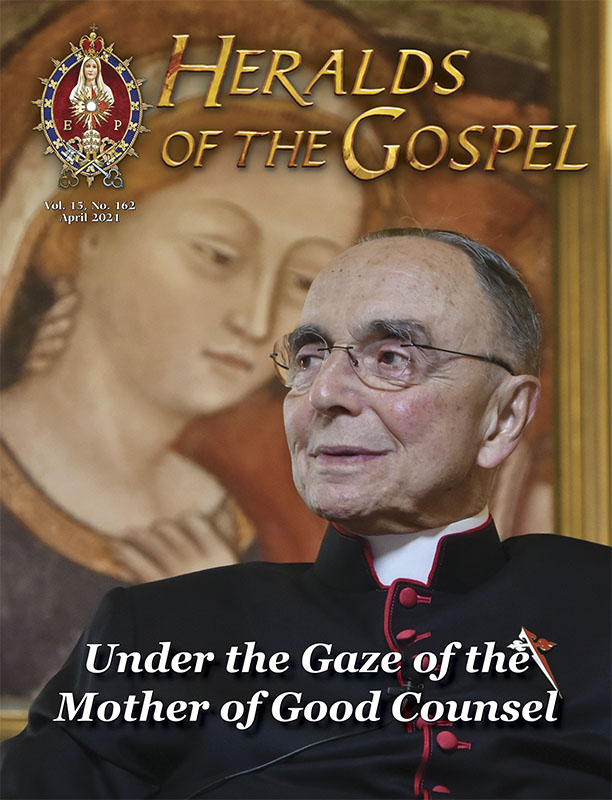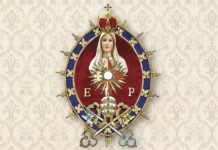The Blessed Trinity may be compared to a council, that is, to the harmony of the Divine Persons who contemplate one another, live and act towards the supreme end. Being intimately diffusive, the Supreme Good desired to extend His goodness to the utmost, thus sending His own Son into the world, the “Wonderful Counsellor” (Is 9:5), to assume our humanity and elevate it to divinity. To accomplish this, He made use of another council, the Holy Family, the earthly “trinity” and absolute model for human society.
Jesus also wanted to establish His own council. Initially formed by twelve Apostles, these, under the impetus of the Paraclete, later led a multitude of souls into the bosom of the Church, spreading it throughout the whole world.
The related word counsel, in turn, denotes a precious gift of the Holy Spirit, who leads the soul in grace to judge particular cases by discerning the supernatural end. It was by this gift that Noah accomplished everything that God had commanded him (cf. Gn 7:5), Abraham obeyed without understanding (cf. Heb 11:8), and Moses heard the voice from on high and relayed it to the people.
After Christ’s Ascension, the manifold divine grace continued to enlighten countless holy pastors who shepherded the Lord’s flock. Among them are the founders, such as Benedict of Nursia, Francis of Assisi, Ignatius of Loyola… However, the greatest guide of the faithful has been Our Lady. Not only because of her participation in the Incarnation and in the Redemption of humanity, but also because of her constant interventions in the events of history, whether by means of popular devotion, or through apparitions, as at Lourdes and Fatima, or even through miracles, such as those associated with the icon of the Mother of Good Counsel at Genazzano.
After the appearance of her fresco in Italy, this Wonderful Counsellor soon worked a host of prodigies. Later, under the same invocation of Good Counsel, the Sovereign Queen claimed two outstanding victories that saved the West from Ottoman usurpation: at Lepanto, under the standard of the Admiral John of Austria, and at Vienna, by the sceptre of the King of Poland, John Sobieski. In both cases, the commanders, imbued with the gift of counsel, received the same acclamation: “There was a man sent from God, whose name was John” (Jn 1:6)!
Counsel is the only one of the seven gifts that is distinguished with the adjective good. This is because, in fact, bad counsels do exist… By means of them, the treachery, corruption and tyranny that have shaken the world have proliferated. It suffices to recall the suggestion made by the serpent in Paradise, the scheming of the Pharisees against Jesus, and the persecutions and plotting against the Church, which continues to spread today. To this end, the devil and his agents constitute not councils, but rather conciliabules, like the infamous one that gathered to crucify the Messiah.
In face of such a panorama, this Wonderful Counsellor may well offer her good counsel to these wicked persecutors: “Do not touch my children! As in the past, I continue to raise up Saints and heroes who, under my patronage, will always be victorious!” If not directly, She will surely intervene by means of other “Johns”… ◊




